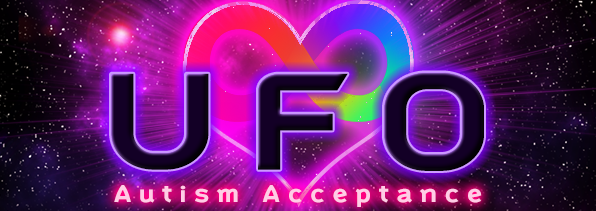 The Operating System Metaphor
The Operating System Metaphor 
I've occasionally seen a metaphor online that describes autism as essentially an alternative operating system for the brain. While I did think it was a fitting one, I never really gave the idea much thought until I used it to explain the relation between autism and
the social model of disability to a friend and realised mid-explanation that it was a far superior method of explaining the differences between autism and neurotypicalism that I had previously thought. As such, I decided to take my explanation and turn it into a short article.
For the purposes of this article, I will specifically be comparing Windows, the dominant OS in the PC world, with neurotypicalism, and comparing the minority OS Linux with autism.
Linux can run the vast majority of programs that Windows can, using emulation or translation layers, but this can cause undue strain on the computer due to the amount of resources needed to emulate an entire operating system. Similiarly, autistic people can mimic the communication methods of neurotypicals (a process
known as masking) but this requires a great deal of stress that can culminate in a complete breakdown, often termed
autistic burnout.
The vast majority of neurotypicals do not understand this (and indeed many autistic people who have grown up being forced to mask to the point where it became subconscious, although no less stressful, may not realise it) any more than someone with no computer knowledge would understand why a Linux PC would need vastly more resources than a Windows one to run a Windows-only program like Notepad.exe.
Linux, of course, has its own slew of excellent native programs that serve as viable alternatives to more popular Windows versions, but the vast majority of people do not even entertain the notion of considering using them simply because they have already decided that their Windows counterparts are the only available option. Similiarly, autistic people have perfectly valid ways of communicating and expressing ourselves (and
as I have previously covered, neurotypicals have been proven to be
just as bad at empathising with autistic people as we are with them), yet the vast majority of neurotypicals automatically reject them as pathological.
Of course, similiar to how autistic people are judged for any "deficits" in emulating neurotypical communication and expected to take on the full effort of modifying our behaviours for the sake of neurotypicals, the onus is always placed on Linux to emulate Windows and Windows programs.
Metaphorical mountains have been moved to make Windows-only games playable on Linux PCs alone, while a native Linux program not running on Windows is still seen as a deficit on Linux's part.
Tying the previous points together, the neurotypical world's reaction to autistic people is too often the equivalent of a Windows user sitting down at a computer running Kubuntu, refusing to use any of its native programs for no reason other than the programs being unfamiliar and insisting that it run Windows in an emulator instead, and then declaring that the OS is defective because of how much more RAM it needs to accomplish the same tasks.
The metaphor becomes even more fitting when taking into account how
few forms of the Windows OS actually exist, disregarding discontinued old versions that are
in various states of usability in spite of Microsoft's best efforts to kill them off. Much like how autistic people's brains are
fantastically diverse relative to the comparatively identical brains of neurotypicals, Linux comes in an endless spectrum of diverse flavours. While two arbitrarily-chosen nu-Windows PCs will likely diverge in nothing more than the wallpaper and the installed programs, two randomly chosen Linux workstations are likely to differ in a dizzying array of ways.
Even many stalwart Windows devotees such as myself can admit that Linux is an supremely versatile and powerful operating system that is at the very least on par with Windows, and that it would unfair to slander it because of how it runs software developed for an entirely different ecosystem, Yet this slander exists in full force against autistic people. While
Autism Acceptance is slowly spreading, a
disheartening 85% of college-educated autistic people are still unemployed due to the pervasive bigoted stigmas against them.
Linux will never do as good of a job at running Windows programs as Windows itself does, but it does have its own world of sublime native programs that in many cases surpass their Windows counterparts. Much the same, autistic people's brains have
many distinct advantages over those of neurotypicals, and it is blatantly unjust and ignorant to dismiss everything we can bring to the table simply because of our harmless natural differences.
In closing, I just want to add, since I have been comparing the Windows operating system with
neuro
typicalism, that the modern (since the end of the 90s) family of Windows operating systems is literally called Windows NT. Sometimes, these articles just write themselves.


 The Operating System Metaphor
The Operating System Metaphor 